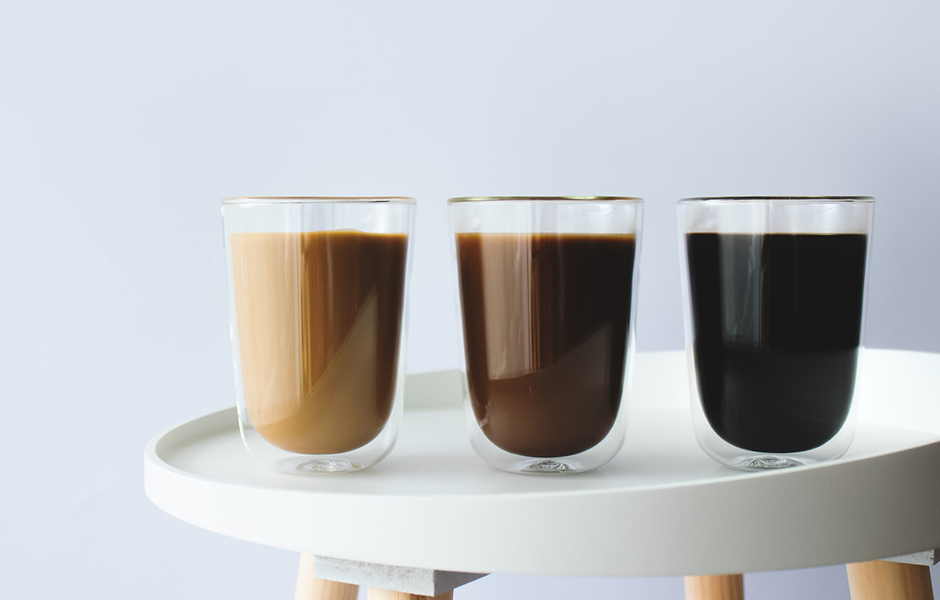Coffee is part of many people’s morning routines across the world. It helps to provide that much needed boost to the day, whether it be in the morning or incrementally throughout the day. Numerous studies have been conducted around coffee, investigating its effect on weight, blood sugar and internal organs to name but a few. However, studies very rarely discuss how coffee impacts your body externally, in regard to your skin and potential issues such as acne.
It's widely agreed that coffee in moderation can actually be beneficial to the body, with an increased caffeine intake being associated with improved well-being, happiness, energy, alertness, and memory recall. However, if left unchecked, coffee consumption does have the potential to cause unwanted side-effects, such as stress, jitteriness, headaches, and anxiety. But how can caffeine affect your skin in particular?
How Caffeine Affects Your Skin
Caffeine is a dehydrator, which means if you’re drinking more than 3 cups of coffee a day without drinking suitable volumes of water, it can lead to dehydration which is reflected in our skin.
Some studies suggest that whilst caffeine cannot cause acne, it can make pre-existing acne worse. As caffeine can result in heightened stress levels, this overproduces stress hormones such as cortisol and adrenaline. These hormones subsequently increase the amount of oil produced by your bodies sebaceous glands, which can result in more regular breakouts.
How You Drink Your Coffee – Its Effect On Your Skin
In addition to caffeine, how you drink your coffee can have a large impact on the state of your skin. Coffee includes milk and sugar, two of the four top dietary acne triggers making skin more prone to breakouts.
- Dairy – There are a number of studies now that have proven a positive link exists between acne and the consumption of dairy. Studies find that participants with higher diary intake had acne more often than those with lower intakes and that ‘low-fat or non-fat’ dairy was shown to be worse than ‘full-fat’. In a follow up study, girls who drank more than two servicing of non-fat milk per day were found to be 22 percent more likely to have severe acne than those who only had one glass of non-fat milk per day.
- Sugar – The majority of us will have sugar in our coffee. If you’re at home, that may be in the form of a teaspoon of granulated sugar or perhaps a flavoured syrup. If you’re out and about, visiting a Starbucks or Costa Coffee, your sugar intake is likely to be much worse. There are plenty of studies out there linking sugar consumption to acne. Diets high in sugar increase the amount of insulin produced by the body, which can cause Glycation, a natural chemical reaction which happens when sugar levels surpass what our insulin can handle. Glycation affects two crucial proteins for skin health, collagen, and elastin. High consumption of sugar affectively impairs these proteins from doing their job, which can result in skin becoming drier and less elastic, resulting in sagging and wrinkled skin.

What Does a Leading Dermatologist Have to Say?
An article by Dr Ahmed El Muntasar of The Aesthetics Clinic in London discusses how too much caffeine can make our faces appear older due to caffeine having an impact on drying our skin, despite being 98% water. Dr Muntasar states that caffeine is a diuretic, and as such doesn’t allow water to be absorbed as easily through the body.
Excessive coffee drinking can negatively impact your complexion, due to its stress heightening characteristics. Caffeine is known to cause adrenaline and cortisol spikes, both of which can increase oil production and result in blocked pores and acne.
Additionally, as is quite well known, caffeine has a direct impact on your bodies ability to regulate its ‘awake/asleep’ cycle, which can lead to insomnia or a general lack of sleep.
Should You Ditch Your Morning Coffee?
Coffee isn’t directly linked with the causation of acne, nor is it directly linked with a worsening of your facial skin. It is only in excessive consumption, linked with the consumption of milk and sugar, that coffee can make acne and pre-existing skin conditions worse.
To reduce your coffee consumption, try the following as way of limiting your dependency:
- Avoid sugar derived from cane in your coffee. Instead, swap it out for a natural sweetener, such as Stevia.
- Use a dairy-free milk, such as oat, soya, almond or coconut. We’ve written an entire blog post on choosing the perfect non-dairy milk for your coffee for your perusal.
- Don’t drink caffeinated drinks after 3pm to ensure you get a good night’s sleep
- Switch to decaffeinated coffee and tea
Is There any Good News?
When caffeine is consumed in moderation there is little adverse effect to the skin. Coffee beans are also phytonutrient rich and are also packed with antioxidants that benefit the body. Drinking coffee means you are regenerating nutrients into your body such as potassium, magnesium and vitamin B2.
As well as coffee benefitting your body in moderation, coffee skincare is also another great way to help with puffy eyes, dark circles and boost collagen.



